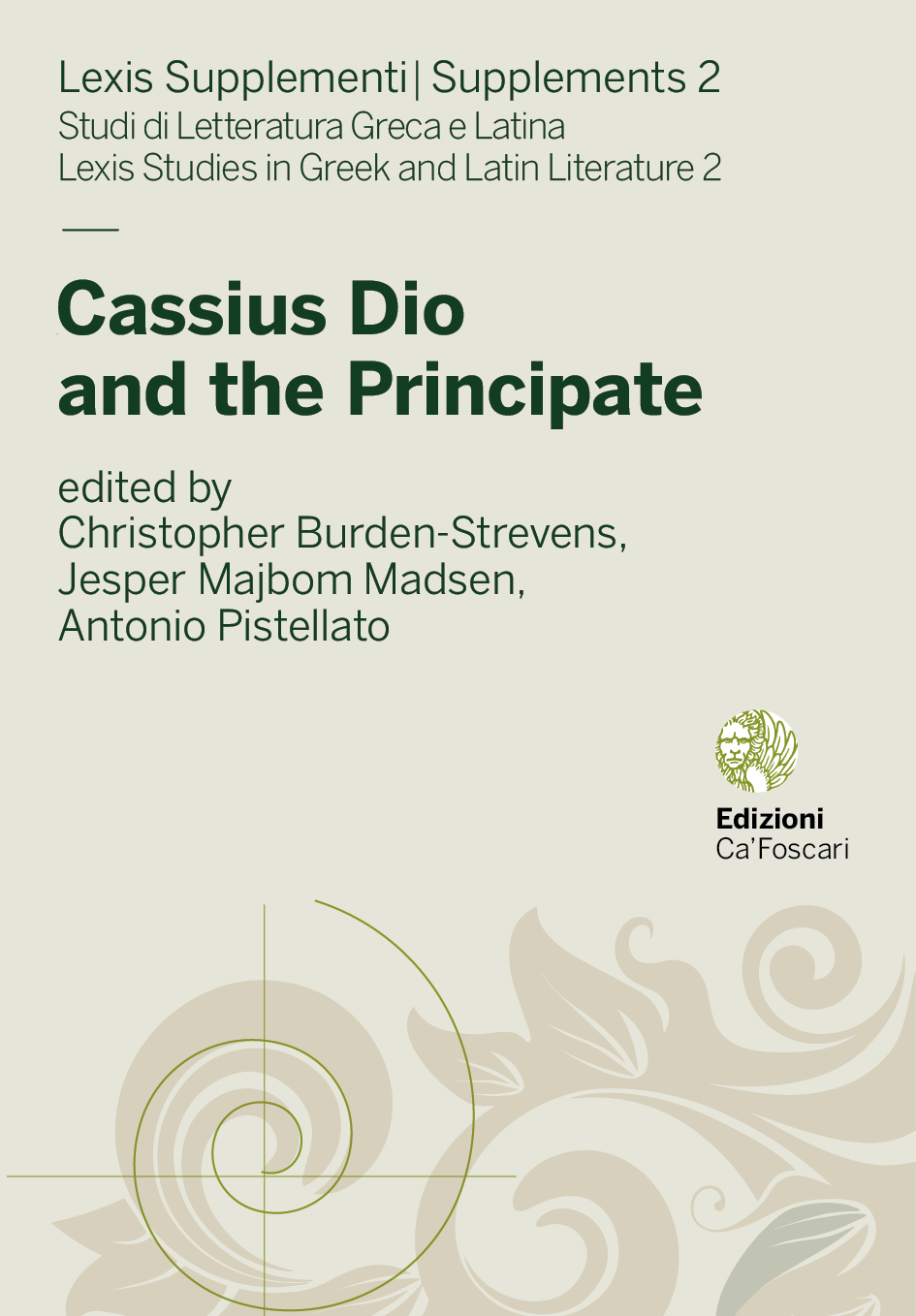Series |
Lexis Supplements
Volume 2 | Edited book | Cassius Dio and the Principate
Cassius Dio and the Principate
open access | peer reviewed-
edited by
- Christopher Burden-Strevens - University of Kent, UK - email
- Jesper Majbom Madsen - Syddansk Universitet, Danmark - email
- Antonio Pistellato - Università Ca’ Foscari Venezia, Italia - email orcid profile
Abstract
In the Imperial books of his Roman History, Cassius Dio focuses on individual emperors and imperial institutions to promote a political framework for the ideal monarchy, and to theorise autocracy’s typical problems and their solutions. The distinctive narrative structure of Dio’s work creates a unique sense of the past and allows us to see Roman history through a specific lens: that of a man who witnessed the Principate from the Antonines to the Severans. When Dio was writing, the Principate was a full-fledged historical fact, having experienced more than two hundred years of history, good and bad emperors, and three major civil wars. This collection of seven essays sets out to address these issues, and to see Dio not as an ‘adherent’ to or ‘advocate’ of monarchy, but rather as a theorist of its development and execution.
Keywords Roman History • Senate • Vespasian • Augustus • Ideal Government • Mixed Constitution Theory • Septimius Severus • Principate • Cicero • The Flavian dynasty • Domitian • Titus • Emperor-Senate relationships • Political structure • Contemporary historiography • Pertinax • Iron age • Stoicism • Ancient Rome • Dynastic succession • Cassius Dio • Severan dynasty • Caracalla • Commodus and Pertinax • Virtue • Imperial Historiography • Consilium • Macrinus • Imperator • Caligula and Claudius • Ideal emperor • Monarchy • Cassius Dio’s contemporary history • Caesar • Elagabalus • Civilitas Principis
Permalink http://doi.org/10.30687/978-88-6969-472-1 | e-ISBN 978-88-6969-472-1 | ISBN (PRINT) 978-88-6969-473-8 | Number of pages 188 | Dimensions 16x23cm | Published Dec. 21, 2020 | Language en, it
Copyright © 2020 Christopher Burden-Strevens, Jesper Majbom Madsen, Antonio Pistellato. This is an open-access work distributed under the terms of the Creative Commons Attribution License (CC BY). The use, distribution or reproduction is permitted, provided that the original author(s) and the copyright owner(s) are credited and that the original publication is cited, in accordance with accepted academic practice. The license allows for commercial use. No use, distribution or reproduction is permitted which does not comply with these terms.
- Introduction
- Dec. 21, 2020
- ‘Ritorno alla monarchia’, tra Cesare e Augusto: le origini del principato in Cassio Dione
- Dec. 21, 2020
- Teoria politica e scrittura storiografica nei ‘libri imperiali’ della Storia Romana di Cassio Dione
- Dec. 21, 2020
- Cassius Dio’s Ideal Government and the Imperial Senate
- Dec. 21, 2020
- Between Civilitas and Tyranny: Cassius Dio’s Biographical Narrative of the Flavian Dynasty
- Dec. 21, 2020
- Δημοκρατεῖσθαι or μοναρχεῖσθαι, That is the Question: Cassius Dio and the Senatorial Principate
- Dec. 21, 2020
